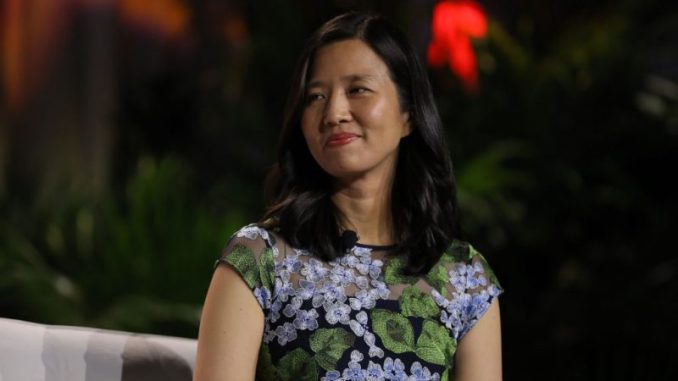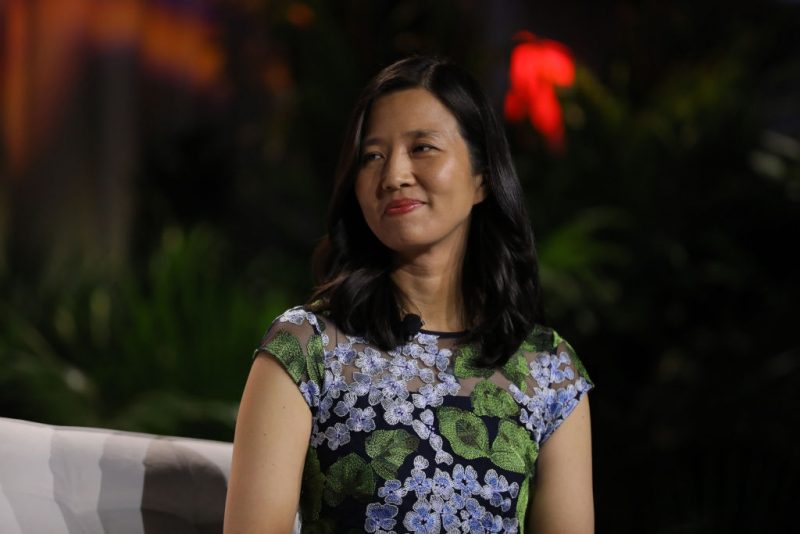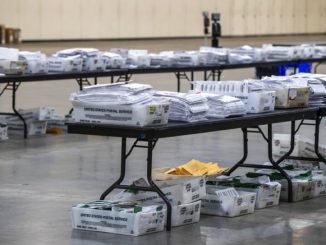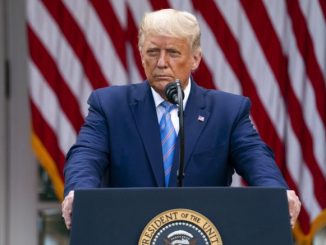

OAN’s James Meyers
12:45 PM – Thursday, May 30, 2024
Boston Mayor Michelle Wu pleaded for a soft-on-crime approach by pushing to abolish the city’s “gang registry,” arguing that certain criminal behaviors should not be prosecuted.
Advertisement
Prior to being elected Mayor, Wu filled out the “2021 Boston Mayoral Candidate Questionnaire” from Progressive Massachusetts, a 501c4 nonprofit organization that tracks and ranks how progressive elected officials are.
According to its website, the group “intends to transform Massachusetts into a bold laboratory for progressive state initiatives.”
In the document, Wu outlined her most progressive commitments, which includes her support for noncitizens voting in Boston’s local elections.
The mayor was asked: “Do you support shuttering the Boston Police gang database?”
She answered: “Yes.”
Wu was then questioned on whether she supported a “do-not prosecute” list by the former Suffolk County district attorney, Rachel Rollins.
Rollins enacted the policy memo, which identified more than a dozen different charges that she maintained should not prompt prosecution.
Those crimes included “shoplifting, larceny, disorderly conduct, receiving stolen property, driving with a suspended license, breaking and entering with property damage, wanton and malicious destruction of property, threats, minors in possession of alcohol, marijuana possession, possession with intent to distribute, and non-marijuana drug possession.”
DA Rollins was later brought into the Biden administration. However, she resigned after an ethics probe found that she committed “egregious” ethical violations and was guilty of “abuse of power.”
Mayor Wu also promised to advocate for allocating some of the police’s budget towards other city priorities as mayor. She expressed a belief that law enforcement should be “demilitarized.”
Like Wu, critics of the gang registry have argued that young people, primarily Black and Hispanic males, have been wrongly profiled as gang members and had been entered in the database due to racism.
Additionally, Wu said police should not have the ability to use tear gas, rubber bullets, and attack dogs while in the field.
The Progressive Mass questionnaire asked, “Do you believe that affiliation or sympathies with White supremacist organizations among officers is a problem with BPD [Boston Police Department]? YES/ NO If so, what measures would you take as mayor to combat that issue?”
Wu responded, “Yes. I have advocated for terminating any [Boston Police Department] employees who were involved with the January 6th Capitol insurrection.”
The mayor also called to publicize personnel files of officers with the public relating to “use-of-force,” which opponents say could put police officers in danger, making them targets.
“[W]e must ensure that contract language enables the sharing of data with the public on officers’ use-of-force and misconduct and allows disciplinary records to be made publicly accessible, in accordance with privacy laws,” she said.
Critics of Wu have highlighted in the past that she uses “Nixonian tactics,” after her administration admitted to creating a list of her most vocal critics and providing it to local authorities, according to a July 2023 report.
The report prompted concerns about whether Wu’s administration was attempting to silence or intimidate her critics, which include some locals who have protested outside of her home.
Furthermore, when Wu was first elected, she opened offices that focused on “Food Justice, Black Male Advancement, LGBTQ+ Advancement, and Worker Empowerment” to create a more “equitable city for generations to come.”
Last December, the Democrat mayor was also labeled as a racist after sending out invitations for a holiday party intended only for non-White city council members.
“Honorable members: On behalf of Mayor Michelle Wu, I cordially invite you and a guest to the Electeds of Color Holiday Party,” the email, which was mistakenly sent to everyone, said.
Fifteen minutes after the email was sent out, Wu’s aide, Denise DosSantos, apologized and clarified that the invitation was only meant for minority city councilors. Despite the email, she did not apologize for planning a party that excluded White city leaders.
“I wanted to apologize for my previous email regarding a Holiday Party for tomorrow,” DosSantos wrote. “I did send that to everyone by accident and I apologize if my email may have offended or came across as so. Sorry for any confusion this may have caused.”
Massachusetts Attorney General Andrea Campbell decided not to investigate the Boston mayor’s “electeds of color” holiday party after discrimination complaints were filed.
Stay informed! Receive breaking news blasts directly to your inbox for free. Subscribe here. https://www.oann.com/alerts





Be the first to comment